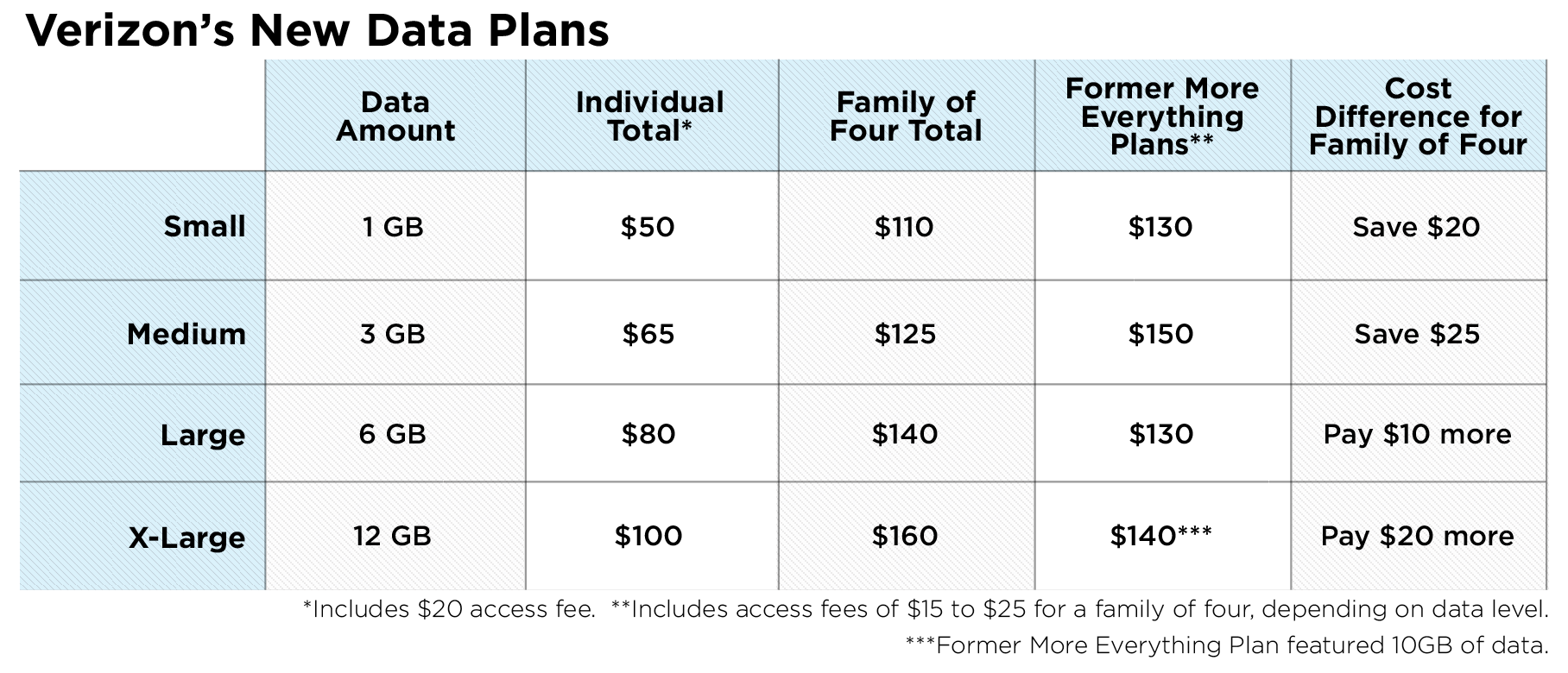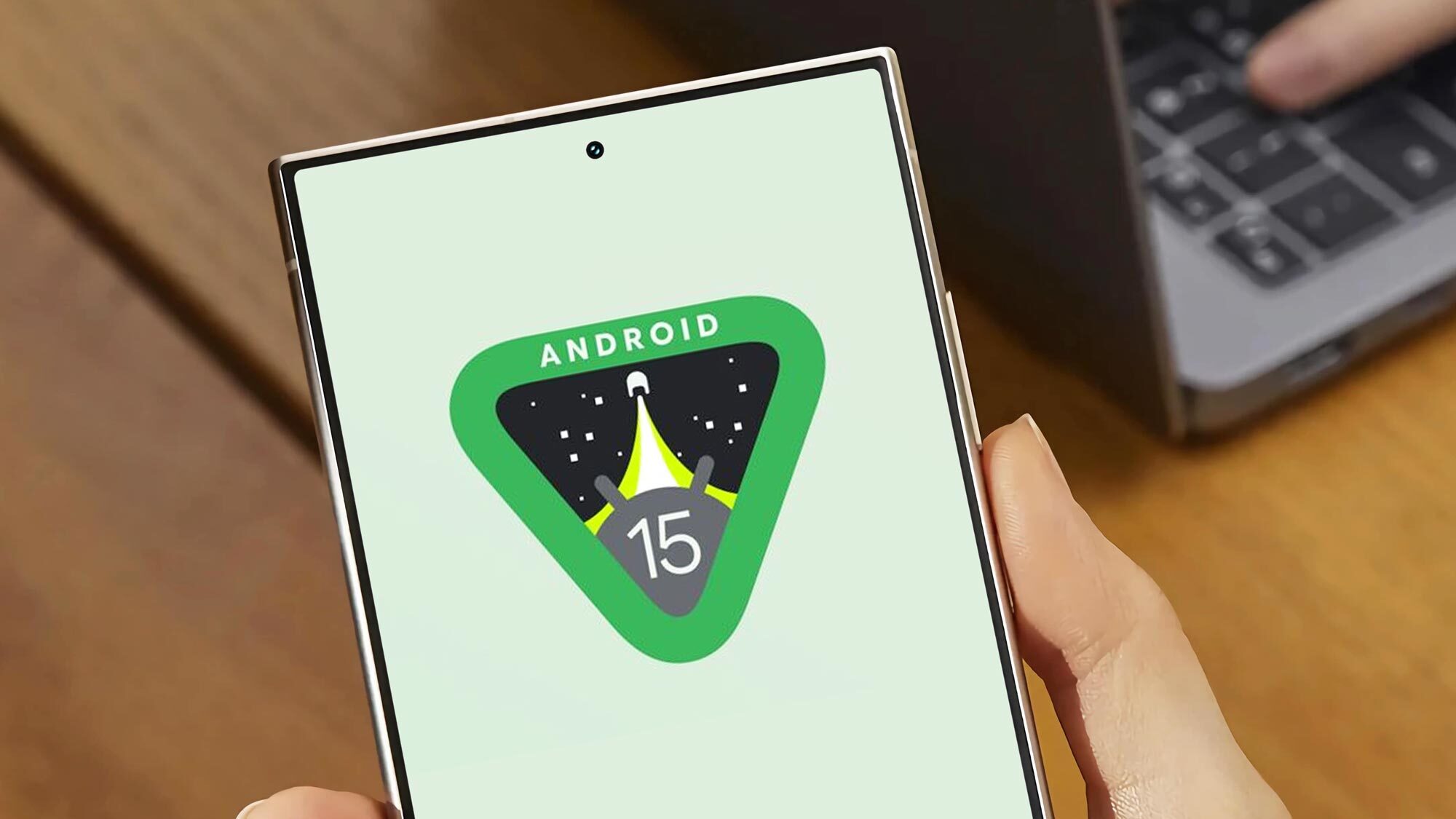Verizon's Contract-Free Plans: Who Saves, Who Doesn't
Verizon has streamlined its cellphone plans into four offerings that are only available if you buy your phone outright or join the carrier's monthly installment plan.


In a major shakeup of its offerings, Verizon is getting rid of contracts, and it's no longer distinguishing individual wireless plans from family plans.
Announced today (August 7), Verizon has pared back plans to four buckets of data, all with unlimited talk and text. Verizon customers will get to choose from 1GB of data at $30 a month, 3GB at $45, 6GB at $60, and 12GB at $80. Extra data costs $15 per GB.
Those rates and data amounts apply to both individual customers and families, who will share from the same bucket of data. The new plans become available August 13.
MORE: Best Cellphone Plans
More significantly, those plans are only available to customers who either pay for their phone through monthly installments or buy their phones outright. That means no more two-year service contracts for subsidized phones, something the wireless industry has been moving away from in recent years.
"In general, carriers have made two-year contracts unattractive by raising fees, giving better discounts to those opting for device financing plans and de-emphasizing two-year contracts in stores," said Lynette Luna, principal analyst with the consumer group at Current Analysis. Rival T-Mobile has already abandoned two-year contracts, and Luna has been predicting the end of such subsidized plans for a while.
"We are surprised that it is Verizon firing the first salvo since it was using two-year contracts as a differentiator last year," she added. "But now all of the dominos will fall for the other carriers."
In addition to streamlining its plans, Verizon is also adopting a single device access fees of $20 per month. Prior plans charged a different fee depending on whether users bought their phones on installment plans or through a subsidized contract. Verizon's individual plans were also priced differently depending on how you bought your phone.
Verizon said it moved to the new plan structure as a nod to simplicity, going so far as to label the different plans as Small, Medium, Large and X-Large depending on the amount of data. "You said you don’t want to have to do a lot of math to figure out your best options, and we heard you," said Rob Miller, vice president of consumer pricing for Verizon, in a statement announcing the changes. "So a plan with small, medium, large and x-large choices makes sense for the way people actually use their wireless service."
Simplicity doesn't necessarily mean less expensive, however. The new 1GB $30-per-month plan will cost $50 once you factor in the $20 access fee. That's $5 more a month than what a current subscriber pays for a 1GB plan. Families with data limits of 6GB or more currently pay $15 per device in access fees if they bought their phone outright or are paying in monthly installments. That fee will be $5 per higher for each device under Verizon's new plans.
To be fair, the new plans may be more attractive to other customers. Current Verizon subscribers with shared data plans of 4GB of less pay $25 a month per device in access fees; that cost goes down under the new plans. And the new 3GB plan, which costs $65 a month when you add in the $20 access fee, looks more attractive than Verizon's current $60 2GB monthly plan.
Existing Verizon subscribers can stay on their current plans. If you're in the middle of a two-year contract with Verizon, you can switch to the new data plans, but you'll still need to pay the existing $40 per device monthly access fee until your contract is up; after that, the monthly access fee will drop down to $20.
- Cellphone Carriers: Customer Service Report Card
- Carrier Access Fees Are Absurd
- Best Smartphones on the Market Now
Sign up to get the BEST of Tom's Guide direct to your inbox.
Get instant access to breaking news, the hottest reviews, great deals and helpful tips.
Philip Michaels is a Managing Editor at Tom's Guide. He's been covering personal technology since 1999 and was in the building when Steve Jobs showed off the iPhone for the first time. He's been evaluating smartphones since that first iPhone debuted in 2007, and he's been following phone carriers and smartphone plans since 2015. He has strong opinions about Apple, the Oakland Athletics, old movies and proper butchery techniques. Follow him at @PhilipMichaels.

